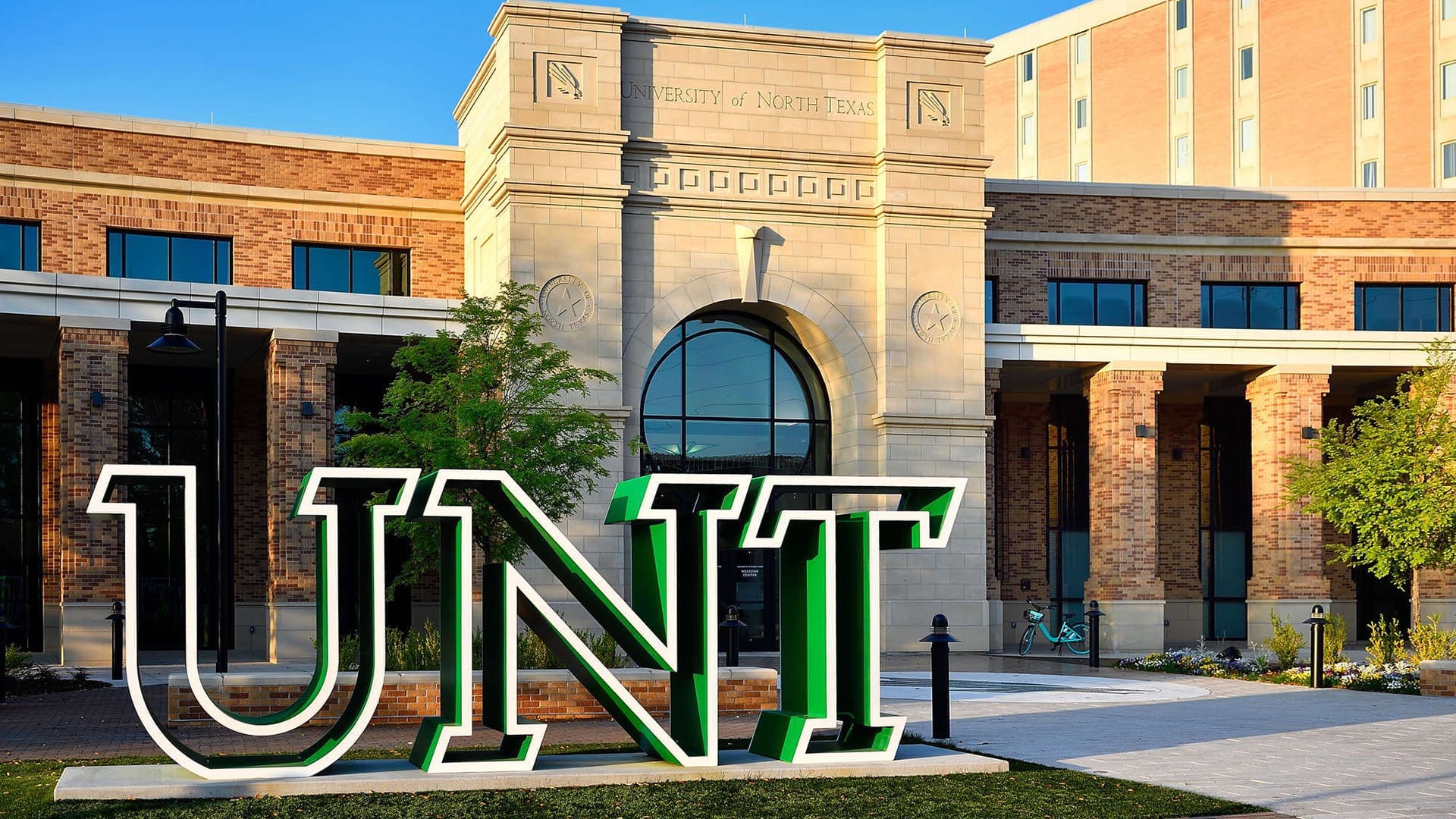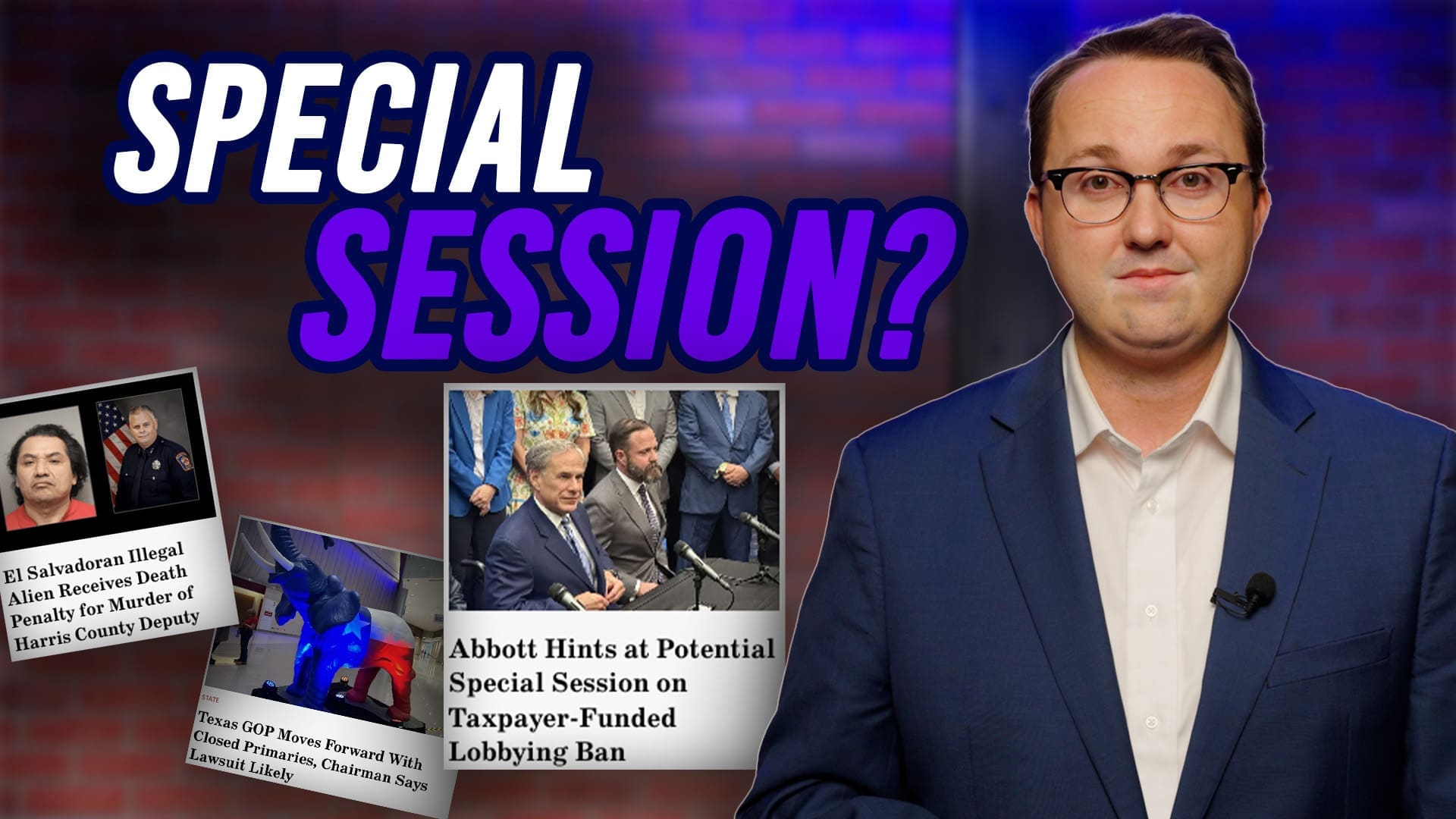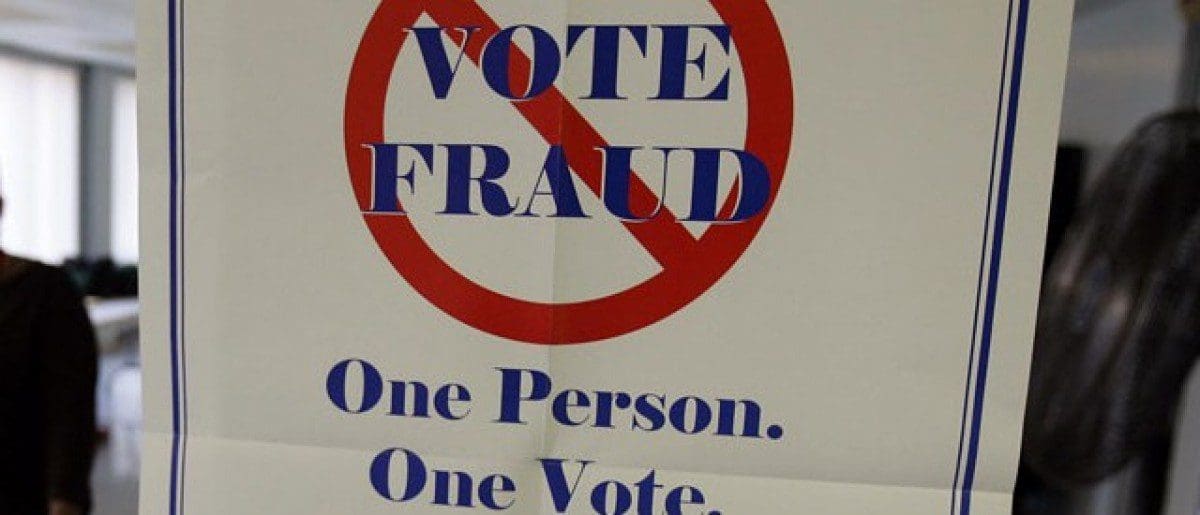This article was updated with a response by State Sen. Brandon Creighton.
Three employee resource groups focusing on anti-racism, transgender issues, and LGBTQ matters have kept the Denton-based University of North Texas at the center of an ongoing debate about DEI in higher education.
In June 2023, Gov. Greg Abbott signed into law a ban on Texas’ public universities establishing a DEI office, using DEI criteria in their hiring practices, or requiring employees or prospective employees to attend DEI trainings. This is known as Senate Bill 17. However, the restrictions do not apply to academic instruction, student organizations, student admissions, guest speakers, or scholarly research.
UNT shut down explicit DEI-related efforts in compliance with SB 17. The university has also shut down the website for the Center for Belonging and Engagement, their replacement for their Division of Institutional Equity and Diversity. These actions showed the university is capable of reform. But the remnants of these programs are now scattered throughout the university, warranting ongoing scrutiny by watchdogs and the media.
The Provost
UNT’s Provost is Dr. Michael McPherson, and his office promotes several different networks for employees. The websites for these networks were active as of March 5, 2024.
One is the White Accountability Group, an Employee Resource Group whose aim is “to create a more intentionally inclusive and equitable environment through our actions. To promote allyship, accompliceship, and anti-racism among white employees for Black, Indigenous, and People of Color (BIPOC) at UNT.” They focus on three main work areas.
Learning about and combating racial injustice, inequity, and inequality in UNT’s programming, policies, processes, people, and practices.
Generating accountability measures among fellow white employees through ‘calling in’ discussions, activities, and conversations.
Modeling how to do the ally, accomplice, and anti-racist work and putting that knowledge to action.
The Provost Office also features the UNT Gender & Sexuality Employee Resource Group. Their website states the group “serves all UNT employees through intentional engagement, policy promotion, and community building that is inclusive of all genders and sexualities [emphasis original].” The website also states the group “shall” “promote allyship, accompliceship, anti-transphobia, and anti-homophobia among all employees for historically excluded genders and sexualities at UNT.” Additionally, it “shall” “engage in learning, recognizing, and addressing gender and sexuality-based inequity and inequality” at UNT.
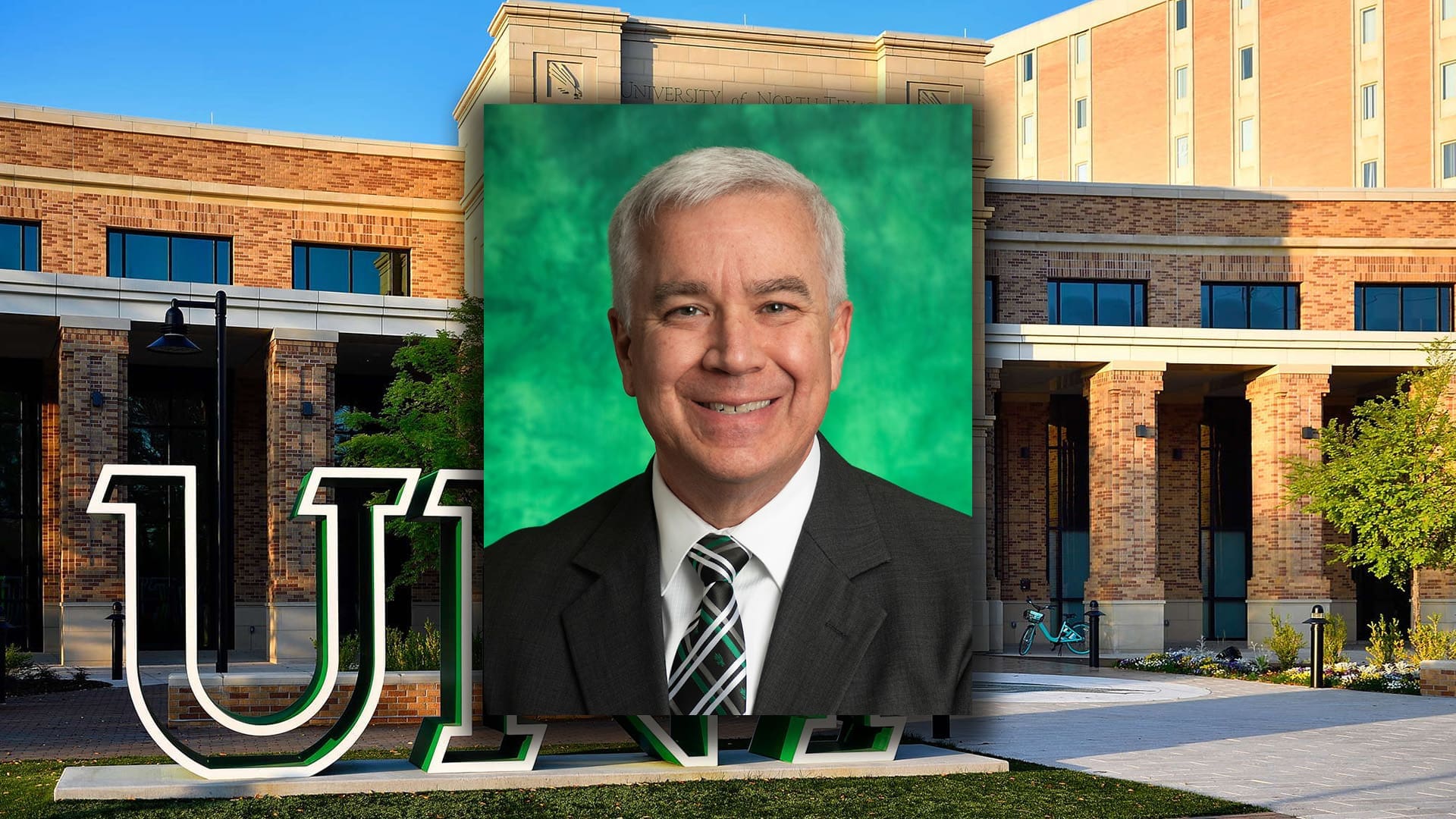
UNT Provost Dr. Michael McPherson
Scott Yenor, a Senior Director at the Claremont Institute’s Center for the American Way of Life, authored a study of DEI at Texas A&M in February 2023 and expressed concern about these UNT resource groups. “Obviously these groups are designed to create a DEI culture on campus. If they are private organizations, however, without state funding, and if the people participating in them are on their own time when they do it, it is not prohibited by SB17,” he told Texas Scorecard. “They are like a church group, organizing for evangelism, except they are pushing doctrines that are designed to undermine the standards that make civilization possible.”
Last is the UNT LGBTQ+ Faculty Network. Their “overarching goal” is to “‘counteract the remnants of prejudice and discrimination of those who do not conform to mainstream sexual and gender identities…’ so that LGBTQ+ faculty members and allies can achieve their potentials[sic] by tapping into their uniqueness to contribute to the mission of UNT.” The leadership of this group comprised Yvonne Dooley and Coby Condrey, Associate UNT Librarians, and the College of Music’s Professor Terri Sundberg.
Yenor also expressed concern regarding this group. “If state money is in any way expended on such networks, it should be rooted out,” he said. “The university administration should be asking people involved in such networks to give a detailed report on their time so that the state can verify that they are not involved in pushing DEI on the state’s dime. They should have strict reporting requirements.”
UNT did not directly mention these three groups in their response to Texas Scorecard’s questions on our findings. UNT’s statement is printed in full at the end of this article.
Despite the presence of these networks, other actions at UNT show that this university can change its course once pressure is applied.
Adjusting to the Law
On August 2, 2023, UNT announced that, in response to Texas’ ban of so-called Diversity, Equity, and Inclusion in universities—Senate Bill 17—they would eliminate their own DEI office.
The university stated their offices of Title IX, equal employment opportunity, and affirmative action would be moved to the Division of Finance and Administration. They would also reorganize their multicultural center, pride alliance, and all related programs under the direction of Student Affairs.
However, there was more than just UNT’s DEI office. In 2019, UNT’s College of Music started an Advisory Council on Diversity, Equity and Inclusion. “The function of this committee is to advise the [College of Music] dean and make ‘recommendations to foster diversity, equity and inclusion within the College, University, and community,’” wrote Maria Baylock, Executive Assistant to the Dean of the College of Music, in a January 25, 2024 email.
This email was part of 68 pages of internal UNT communications obtained by Texas Scorecard through an open records request. Within these communications were the bylaws that govern this committee. One of these bylaws states that the committee will “advise the dean on matters regarding diversity (musical, cultural, racial, ethnic, gender identity, sexual orientation, ability/disability, etc.) and inclusion for all policies, programs, and practices in the College of Music.”
These communications revealed that the College of Music had put this council on hiatus in Fall 2023 as they awaited word from the university as to how the new state law would affect it.
On December 11, 2024, UNT Vice Chancellor & General Counsel Alan Stucky issued a university-wide memo advising faculty on what Texas’ DEI ban allowed and didn’t allow. Regarding DEI Committees or Councils throughout the university, Stucky wrote that their “activities [must] be reviewed and their mission statement and/or charge and activities be revised as needed to comply” with the new law. He wrote that after such a review “it may be determined that mission statements and activities of Committees and Councils must be eliminated or significantly revised” because of the new law.
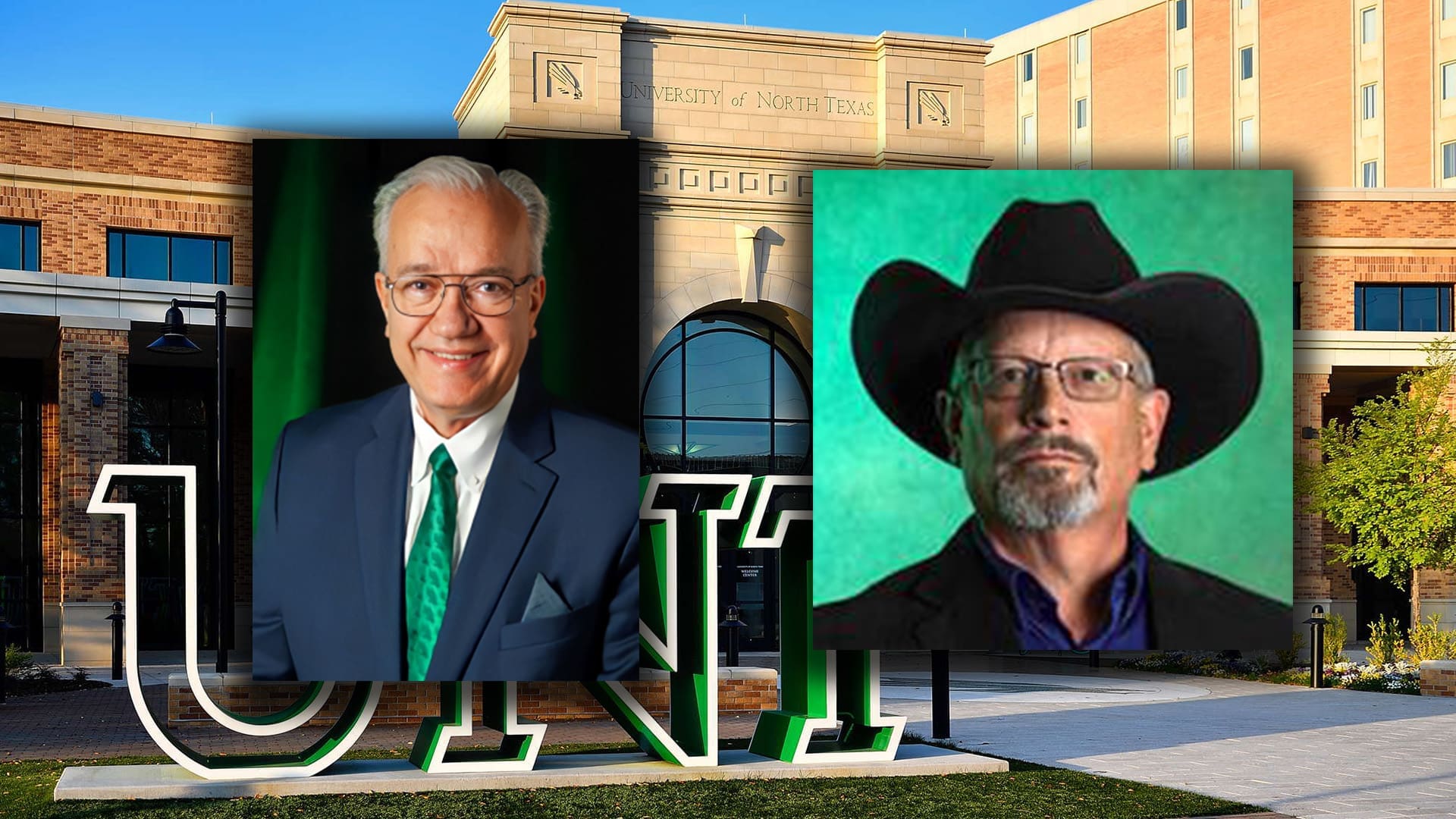
Left to Right: UNT College of Music Dean John Richmond; UNT Vice Chancellor & General Counsel Alan Stucky
In January 2024, the new law came into effect.
On January 24, 2024, UNT College of Music Dean John Richmond informed COM staff and faculty who had requested to be on the DEI Advisory Council that they would be able to continue. He mentioned that they must remove reference to UNT’s now defunct Division of Institutional Equity and Diversity from the college’s bylaws governing the council. That division has been replaced with the Center for Belonging and Engagement. “As we all lean into these new guidelines with intention, the COM Advisory Council has my full support to elect a chair, determine a meeting schedule, and discern the focus of the work the council wishes to undertake,” Richmond wrote in an email.
Attorney Tony McDonald reviewed the UNT-wide memo and Richmond’s email to check for compliance with the state’s DEI ban. “The University of North Texas appears to be taking their obligations under the state’s DEI ban seriously in reviewing its existing DEI committees,” he told Texas Scorecard. “However, the university will need to take action to eliminate those committees and activities that violate state law. Taxpayers must be vigilant to ensure UNT doesn’t just talk the talk, but walks the walk.”
Texas Scorecard asked the new law’s sponsors in the Texas House about UNT’s memo and the College of Music’s DEI Committee. These are Republican State Reps. John Kuempel, Matt Shaheen, and Greg Bonnen. They did not reply before publication.
Texas Scorecard asked State Sen. Brandon Creighton (R–Conroe), who authored the new law, about these same issues, and the groups at UNT’s Provost Office. “Since becoming law in January, the majority of Texas public colleges and universities have worked to implement SB 17 and eliminate DEI offices on campus. The Senate Committee on Higher Education will soon announce our first interim hearing ahead of where we will evaluate the early achievements of this policy and exercise full oversight,” he wrote to Texas Scorecard. “We have been very clear, over the past few months, that counsel for each of these institutions guide university leadership in a manner that keeps their clients compliant with these recent statutory changes. There have been several reports across the state that are troubling and will be investigated. Any diversion will be taken seriously by the committee and result in significant consequences—including appropriations.”
Merely banning DEI may not be the answer. On March 1, 2024, it was widely reported that the University of Florida “fired all employees related to DEI” in accordance with a new state regulation.
In February 2024, an investigation by Accuracy in Media raised concern about how well UNT was walking the walk. AIM found state universities were attempting to skirt the new DEI ban, and UNT was one of these universities. Joe Posada-Triana, the Director of Underserved Students at UNT Dallas was recorded having said that while the DEI office has been dissolved, the university is reclassifying the work under the word “belonging.” He added that their Diversity and Inclusion task force has been renamed the “belonging task force.”
The term “belonging” is being used by UNT’s main campus in Denton as well, as seen in their Center for Belonging and Engagement, which replaced their Division of Institutional Equity and Diversity.
In January 2024, Texas Scorecard sent an open records request seeking records of funding for the Center and for the Belonging & Engagement Committee. On January 26, UNT responded with a document that showed more than $633,000 allocated. UNT did not respond to follow-up questions about these monies.
In February, Texas Scorecard sent open records requests investigating the College of Music’s DEI committee, and the Provost’s White Accountability Group.
As of March 5, 2024, change appears to be occurring at UNT. The website for the Center for Belonging and Engagement is down. The Internet Archive reported the website was still up on March 2, 2024. The main website for the College of Music’s DEI Committee is down, despite the above referenced internal communications showing this committee would be moving forward. The committee’s council structure and initiatives pages are still up, but the structure page is outdated as it lists members whose terms expired in 2022 or 2023. Internal UNT communications revealed which COM faculty and staff were appointed as committee members for the 2024-2026 term.
The Dallas Express reported on March 16 that a job posting at UNT had DEI expectations. The university replied that the posting had “outdated language” and that it had been removed.
Texas Scorecard also found DEI Advisory Committees at the UNT Library Council and UNT’s Ryan College of Business. As of March 5, 2024, an attempt to access the Library Council committee’s website showed the site was no longer available, whereas the College of Business’ responded with an “access denied” message.
Texas Scorecard asked UNT about these committees. “The University of North Texas is in compliance with SB 17,” Devynn Case, UNT’s Director of Media Relations, wrote in UNT’s reply. “The new Texas law prohibits universities from having a DEI office, employees or third-party agencies who perform the duties of a DEI office and from engaging in certain activities related to DEI.” UNT’s statement is printed in full at the end of the article.
Scott Yenor admonished that the work of such committees should not be paid for by the taxpayer-funded university. “If there are course buyouts for participation on these committees or if they are part of service obligations, they should not be compensated and should not be subvented through university funds,” he told Texas Scorecard.
More To Uncover
Texas Scorecard asked UNT for comment on the findings in this article. Below is their statement from Director Case.
The University of North Texas is in compliance with SB 17. The new Texas law prohibits universities from having a DEI office, employees or third-party agencies who perform the duties of a DEI office and from engaging in certain activities related to DEI.
To comply with the law, UNT dissolved its Division of Inclusion, Diversity, Equity and Access in Fall 2023.
The Center for Belonging and Engagement’s mission is to provide opportunities for connection and involvement that empower all our students. The CBE includes support for nontraditional student services, the First-Generation Student Center, and Student Veteran Services.
The law does not apply to academic course instruction, research or student organizations.
The University of North Texas is committed to continued compliance with SB 17.
While there are encouraging signs at UNT, there is more work ahead at the “Mean Green” campus.
In part two of this series, Texas Scorecard will examine Marxist professors at the university, and the Marxist classes taxpayers are funding.
Source Documents
For this article, Texas Scorecard reviewed the following documents.
UNT College of Music Internal Communications
UNT Center for Belonging and Engagement Funding
This article contains highlights from these documents. Citizens wishing to conduct a deep dive should click the links above.
